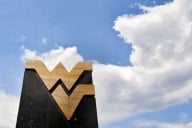You have /5 articles left.
Sign up for a free account or log in.
Mansfield University of Pennsylvania -- which has had football teams since 1891 -- announced Thursday that it was eliminating the sport because of budget shortfalls.
"Because Mansfield’s academic programs form the foundation for educating every student, preserving and enhancing the quality of these programs will always be our first priority. In this challenging budget climate, academic excellence requires making difficult choices," said Maravene Loeschke, president of the university, in a statement. Mansfield, as a public university with about 3,400 students, "is too small an institution to support a football program in the manner it deserves," Loeschke said.
Eliminating football programs is a rare move for colleges to make. Even as many institutions scale back their athletics programs to save money, to comply with Title IX or both, football is usually a sacred cow.
But the bottom line, Loeschke said, was that Mansfield couldn't afford to keep it. Mansfield's total budget is just under $40 million -- with more than $3 million going to athletics, and the university facing a total budget shortfall of $1.4 million. The university spends about $500,000 a year on football, and athletics officials have estimated that the university would need to spend another $500,000 on facilities and other improvements to make the team competitive.
In a list the university provided of questions and answers about the decision, one of the questions is why Mansfield doesn't "prioritize football like other institutions do." The answer: "We have prioritized football over all other sports. Football receives more funding than any other sport. However, we do not prioritize football over academics. We are now in a position that we would have to diminish academic support to fund football. We will not do that."
Mansfield plays in the Division II Pennsylvania State Athletic Conference. The Moutaineers just finished a disappointing 0-10 season, but fans came out for the final games -- many with signs imploring the university to keep the team. The university has played key roles in the history of college football, for example by being the host -- in 1892 -- of the first ever night football game.
All current athletes will keep their scholarships, although officials expect most if not all of the football players who aren't graduating to leave the university to play elsewhere. If the players leave, the university may become less diverse. There are at least 23 black football players at the university and they constitute more than 10 percent of the university's black student population.
Many colleges -- when eliminating men's sports teams -- blame the cuts on Title IX of the Education Amendments of 1972, which requires schools and colleges receiving federal funds to have substantially equal programs for male and female students. At Mansfield, the university has said explicitly that the cuts are being made for budgetary reasons, not because of Title IX. However, it does appear that the university may be out of compliance with Title IX now, and might be in compliance without the football team.
One way to demonstrate compliance is through the concept of "proportionality," in which the percentage of female athletes roughly corresponds to the percentage of female undergraduates. Currently, 62 percent of Mansfield undergraduates are women, but 52 percent of athletes are male. Without football, 64 percent of athletes would be women.
Joseph M. Murphy, a professor of music and president of the Faculty Senate, said that no one wanted to see cuts, but that professors appreciated the way this cut will allow other sports to continue and will minimize reductions to academic programs. In the context of a small university, football "is just a bigger ticket item," he said. "It's either cut football or all the other sports," he said.
A spokesman for the athletic department said that the football players were "devastated," but were holding up as best they can. The spokesman predicted that most would leave the university. "They are football players," he said.








